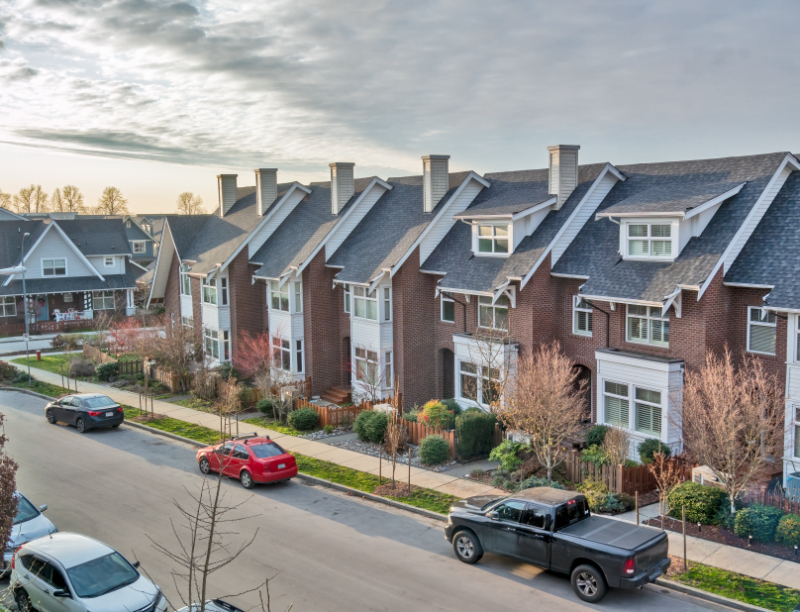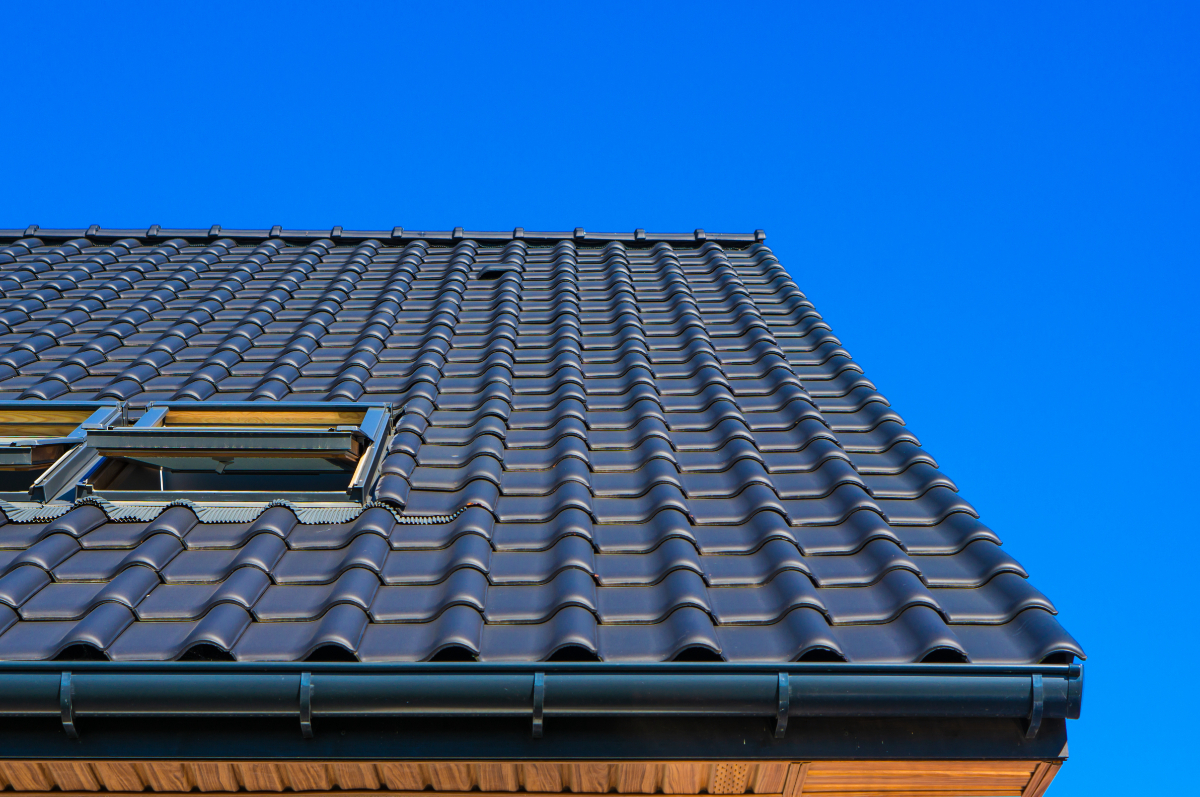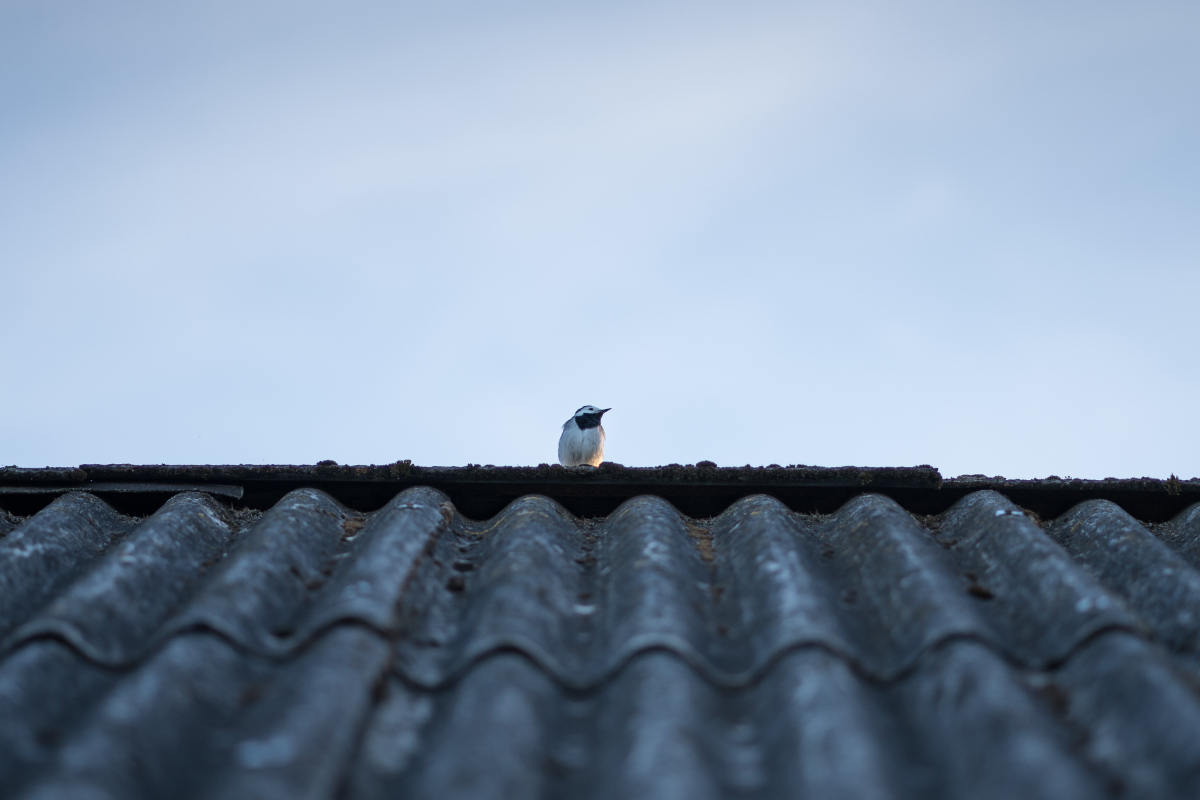Find out how much a new roof costs in the UK. Roof replacement prices vary depending on materials, size, and labour, with average costs ranging from £5,000 to £12,000.
Learn about factors that affect pricing, including roofing type, installation fees, and regional differences, to help you budget for a new roof.
Why Is a New Roof Necessary Vs Repair Work?
A new roof is often necessary when the existing roof has reached the end of its life and repairs are no longer cost-effective. Over time, roofs suffer wear and tear from exposure to weather elements like rain, wind, and snow. Older roofs may show signs of significant damage such as leaks, broken tiles, or large patches of missing shingles. In such cases, doing frequent repairs can become more expensive than a full roof replacement.
While small damages or isolated issues can often be fixed with repairs, a full replacement ensures a long-term solution. A new roof not only enhances the overall look of your property but also ensures the safety and structural integrity of your home. For those planning to sell their house, a new roof can increase the property’s market value and attract potential buyers.
When deciding between repair and replacement, consider the age of your current roof, the extent of damage, and how much more time repairs might buy you compared to a full replacement. Making a well-informed decision can save time, money, and potential future problems.
What Factors Influence the Cost of a New Roof?
The cost of a new roof in the UK can vary significantly, influenced by various factors. One of the primary considerations is the type of roof you need.
For example, flat roofs generally cost less than pitched roofs due to fewer materials and the less complex installation process.
The size and complexity of the roof also play critical roles. Larger roofs or those with multiple gables, hips, or valleys will require more materials and labour, leading to higher costs.
Roofing materials are another major factor affecting the overall expense. These materials can range from economical options like felt to more premium choices such as slate or clay tiles.
The choice between these materials can vastly alter the overall cost. While quality materials may be more expensive upfront, they often offer a longer lifespan and better durability.
Labour costs in the UK also influence the total expense. Roofing contractors may have different rates depending on their experience and the region where you live. For instance, labour costs in London tend to be higher than in other areas.

Additional costs to consider include the removal of the old roof, scaffolding, skip hire, and possible repairs to the underlying roof structure. Installing new fascia, soffits, and guttering can also add to the total cost. It's essential to evaluate the condition of your roof and whether any additional repairs or replacements are needed. For example, if there is water damage or structural issues, these will increase the cost.
Furthermore, insulating your roof or adding solar panels can add to the expense but can offer long-term savings on energy bills. In summary, the cost of a new roof in the UK is influenced by several factors, including the type and complexity of the roof, the materials used, labour costs in your region, and any additional repairs or upgrades you require. Careful consideration of these aspects can help you plan and budget more effectively for your roofing project.
What Is the Average Cost?
The average cost of a new roof in the UK can vary significantly depending on the type of roof and the materials used. For a typical semi-detached house, you can expect to pay between £5,000 and £7,000.
This estimate generally includes the removal of the old roof, installation of the new roof, and labour costs. If you have a flat roof, the costs are generally lower, ranging from £1,000 to £3,000, depending on the materials used.
Felt roofs tend to be on the cheaper end, while high-end materials will increase the price. On the other hand, pitched roofs are usually more expensive due to their added complexity and material requirements.
For a slate roof, the average cost ranges from £7,000 to £10,000. If you opt for concrete or clay tiles, the cost may be slightly less, typically between £6,000 and £8,000.
It is worth noting that these costs can increase if your roof has a complex design or requires additional repairs. These are general estimates, and actual costs will vary depending on the factors mentioned above.
For accurate pricing, it is advisable to obtain multiple quotes and ensure that all aspects of the job are included in the estimates. This will help you get a clearer idea of the total cost and avoid unexpected expenses.
In addition to material and labour costs, consider the potential need for scaffolding, which could add another £800 to £1,200 to the total cost. Insulation, if required, could also increase the overall expense.
It is also essential to think about the longevity of the materials; cheaper options may have a shorter lifespan, meaning they may need replacing sooner than higher-quality materials. In conclusion, while the initial outlay for a new roof may seem high, thorough planning and obtaining multiple quotes can help to manage costs efficiently.
How Long Should a New Roof Last?
A new roof typically lasts between 20 and 50 years, depending mainly on the materials used and how well it is maintained.
Slate roofs can last 100 years or more, making them a worthwhile long-term investment despite their higher initial cost. On the other hand, clay and concrete tiles have a lifespan of about 50 years, while felt roofs usually last between 20 and 30 years.
Proper maintenance and timely repairs can significantly extend the life of any roof. Regular inspections are crucial as they help identify issues early on, preventing minor problems from escalating into major damages.
It is essential to ensure that your roof is inspected regularly to maintain its condition. The quality of the installation also plays a significant role in the lifespan of the roof.
Hiring professionals with good reviews and plenty of experience is crucial to ensuring that the job is done correctly. Make sure to choose a reputable roofing company to guarantee quality workmanship.

Environmental factors are also vital. High winds, heavy rainfall, and harsh weather conditions can reduce a roof's longevity. Therefore, your location is an essential factor to consider when estimating how long your roof will last. In areas with severe weather, more durable materials may be necessary to ensure a longer lifespan for your roof.
The longevity of your roof depends on material quality, proper maintenance, expert installation, and environmental factors. Regular check-ups and professional care can help ensure your roof stands the test of time.
How Long Will It Take to Replace Your Roof?
Replacing a roof generally takes anywhere from a few days to a couple of weeks, depending on the size and complexity of the project. For a semi-detached house, the job can usually be completed within one to three weeks. Flat roofs are quicker to replace, often completed in less than a week. Pitched roofs take longer due to the complexity of their design and the additional materials required.
The weather can also affect the timeline. Rain, high winds, or extreme weather conditions can delay the project. Planning the replacement during a season with milder weather can help avoid delays. Preparation work plays a part, too. The removal of the old roof, setting up scaffolding, and any required repairs to the underlying structure can extend the time needed. Efficient planning and clear communication with your roofing contractor can help ensure the project stays on schedule.
Keep in mind that additional elements like new fascia, soffits, or guttering might add extra time to the overall project. It's advisable to discuss the expected timeline with your contractor beforehand to have a clear idea of how long the work will take.
Choosing an experienced roofing team will make the process faster and more efficient, ensuring that the roof is installed correctly and stands the test of time. Always make sure to get quotes and ask any questions you may have to prepare for the project fully.
Do you require commercial roof fitting in Glasgow and the surrounding areas of Scotland?
Get in touch today to discuss your requirements.
Commercial Roof Fitting Glasgow

